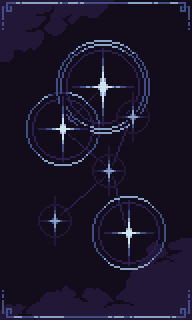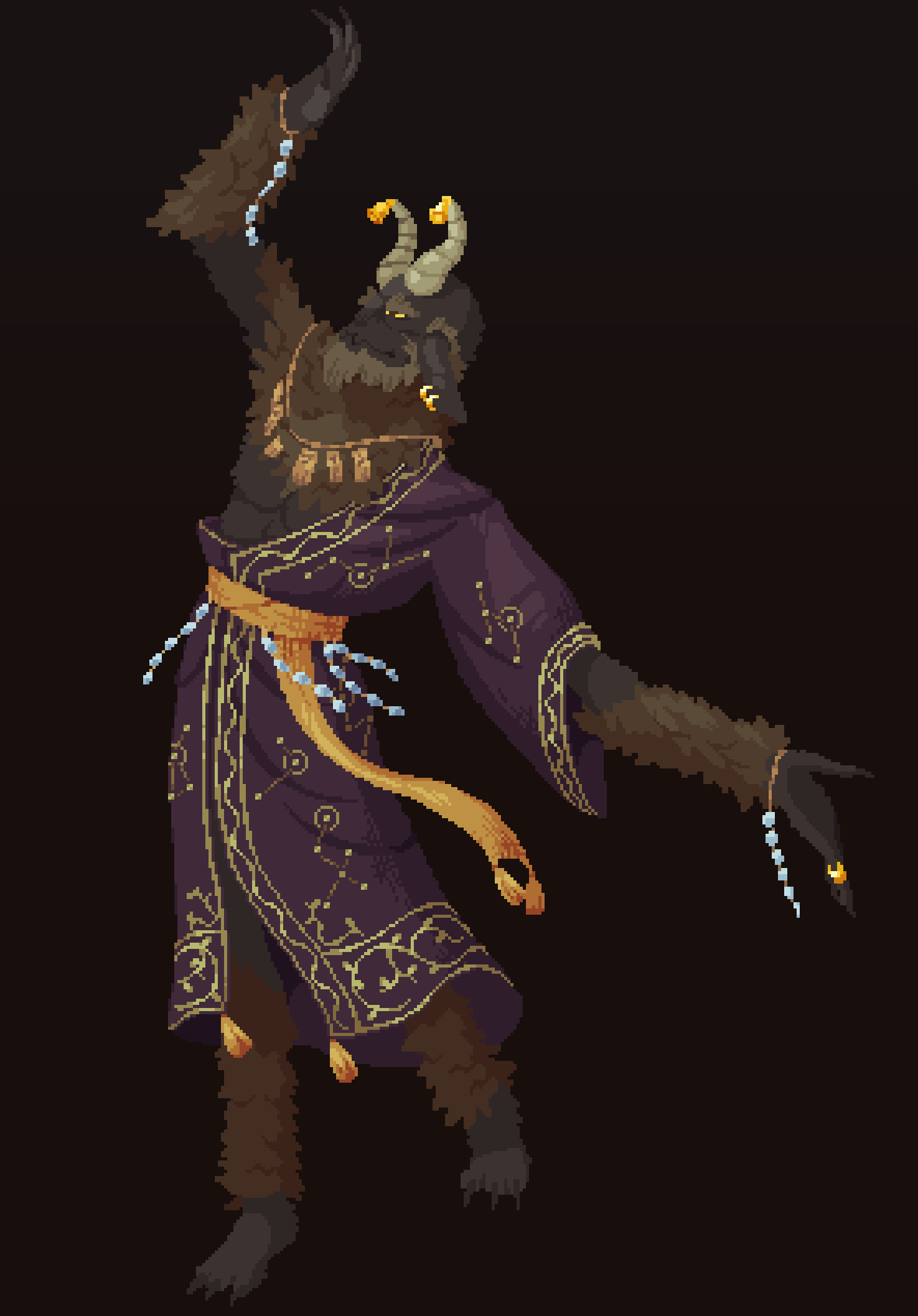Saīlem Mus
"...And you shall live! And you shall live with purpose and with hope, with kindness and respect. And you shall live! And you shall live and love each other dearly..."Saīlem Mus (nov. "Star Path") is a religious system found in the Valley of Many Rivers, primarily in the region of Novārkan Berkhumen. The origins of the faith are said to lead to six clay tables, said to have been written centuries before the Shattering, called Saīlem Arnaten (nov. "Star Charts"), which describe the stories and rites of the stars. five out of six are securely stored in the archives of Novār cities. Saīlem Mus follows the teachings of the Six Stars, which compose the Pantheon of the faith, and embody the central values of the religion. These values are considered the essence of "Humanity" During the reign of the Old Kingdom, due to how similar some concepts of the religions are, the inhabitants of the kingdom didn't mind the practice of the faith, and considered it an off-shoot of their own. The sixth tablet was taken to the grand library at the Kingdom's capital for study and storage purposes, despite the pleas of the faith's adherents. As a result of The Shattering, the capital collapsed into the basin that is now Nozzhava Lake, the Tablet was never recovered and is now considered destroyed or lost. Even though at that point the content of the final tablet was written down on paper, the original had indescribable religious value.
Core Beliefs
Origins of Life
As stated in the Saīlem Arnaten, the world had no beginning. For countless ages, the lands had remained covered in grass and forests, the mountains stood as they do now, animals lived in blissful ignorance, the Sun and Moon danced across the skies. All was constant under the watch of the stars, each and every one considered a spirit. But one day, the Six That Shone the Brightest and their Cohorts came down to breach the monotonous eternity, and so they created the Novār, the Humans, and all others with the ability to think and act on their thoughts, and not instincts. They taught them how to feel for one another, and gave lessons which they were supposed to adhere to, which they called the Six Ideals. Those who would closely follow the lessons would join the Six in the dark sky to keep watch over the lands after they pass away.Rut Zereunen, Six Ideals
When the Six approached the people they created, they gave them values which would lead them to live in peace and harmony with each other, and to uphold that status in the future. Those values would become The Six Ideals, which are: Ungael, Generosity, the First StarThere's an old Novār proverb: "In your lifetime you shall give as much as you have". This ideal promotes charity and graciousness in trade relationships, as well as romantic ones, and creating an environment where one doesn't need to steal. Einsel, Respect, The Second Star
Although the scriptures say that everyone is born equal, its expected of younger people to respect the older generation, as they are suppposed to be the guides to life proper. This ideal promotes respect for one another, for elders and those with higher positions. Azkhil, Wisdom, The Third Star
One should strive to know as much about the world as one can, as that widens the scope of your thinking, and provides new perspectives on things. This ideal promotes the accumulation of knowledge, and the sharing of that knowledge with others, so that knowledge wouldn't be hoarded by certain individuals. Tolgir, Patience, The Fourth Star
Patience is indeed a virtue, one has to excercise patience in order to get anything done, for nothing comes spontaneously. This ideal promotes being patient with others, with oneself and when in process of doing something. Muruz, Honesty, The Fifth Star
"One shall not know peace if their throne is made of lies", so says one of the Tablet passages. If a person is honest with themselves and with others, then any conflict will be resolved quickly. This ideal promotes honesty in all relations. Unsur, Compassion, The Sixth Star
Compassion helps achieve the sense of true community. Feeling for another person helps one feel connected to others, understand their pains and joys. This Ideal promotes compassion for others, helping the impoverished and the suffering.






Comments